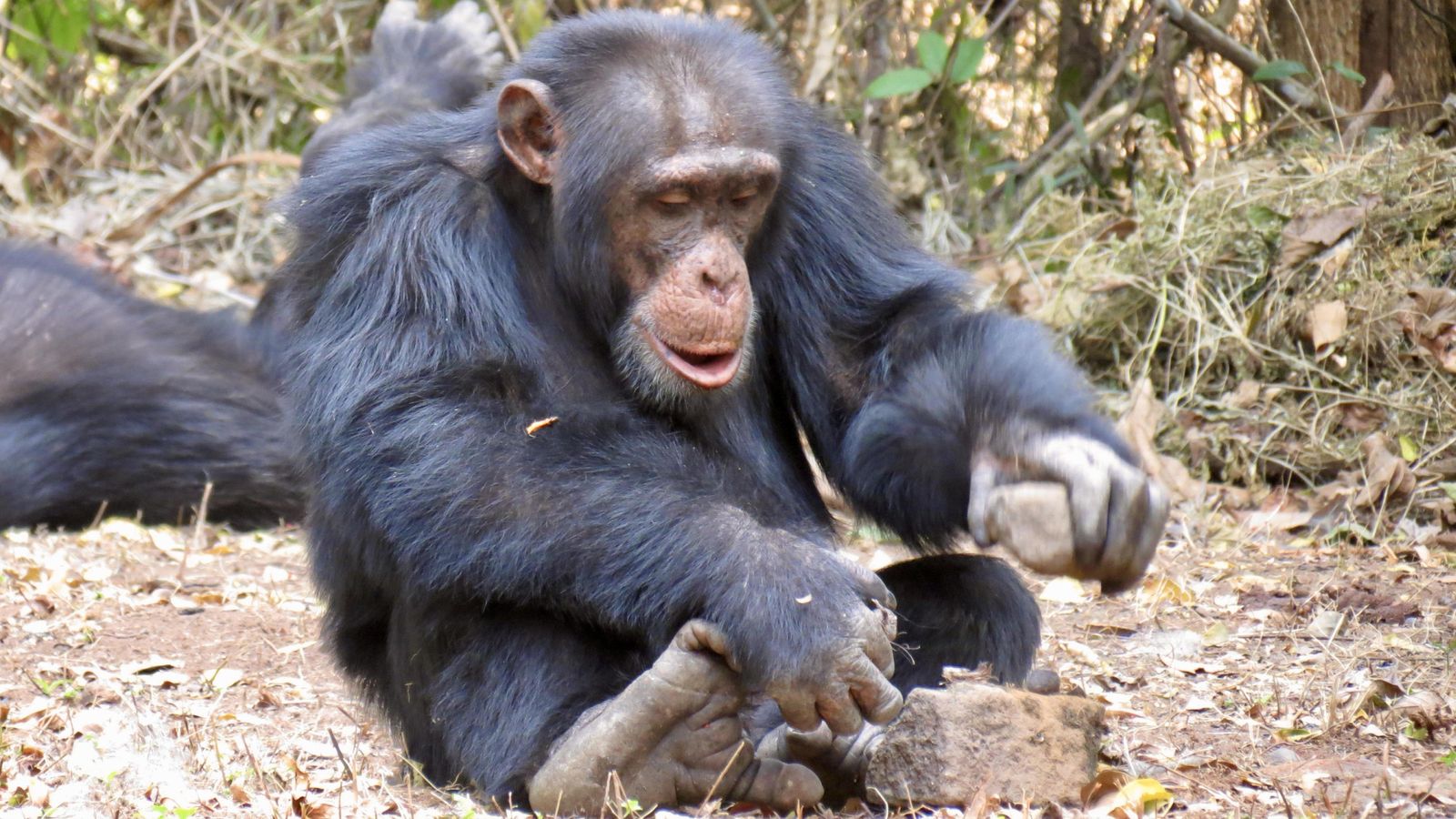Chimpanzees do not automatically know how to crack nuts with stone tools, new research suggests.
The study by the University of Zurich instead shows they learn this behaviour by watching others and learning from them.
The new research indicates that the way culture evolves in groups of chimpanzees and humans may be more similar than first thought.
Field experiments by @KathelijneKoops et al. find that nut cracking is not readily adopted by wild chimpanzees, suggesting that this cultural behaviour may be socially learned. https://t.co/YU2q0yrWzz pic.twitter.com/7l95PcHK6D
Professor of anthropology Kathelijne Koops travelled to the Nimba Mountains of Guinea in western Africa to conduct the experiment
A group of chimpanzees were given the same tools that other nearby chimp communities use to crack nuts.
This group showed interest in the tools at first but did not use them to open the nuts as the other communities did eventually lost interest in them over a few months.
However, a separate group of chimpanzees living less than four miles away did use the tools to crack nuts.
African Cup of Nations 2022: Referee causes chaos after ending group match between Tunisia and Mali early twice
Ethiopians prepare for battle to ‘save the nation’, as men and women head to the front
South Africa: Farm where Nelson Mandela started anti-apartheid journey risks closure ‘because of pandemic and corruption’
Dr Koops said this suggested the primates “acquire cultural behaviours more like humans and do not simply invent a complex tool use behaviour like nut cracking on their own”.
The findings, published in Nature Human Behaviour journal “help to shed light on what it is (and isn’t) that makes human culture unique,” she added.
Dedicated to the First Guide of Nimba: Kassié Henry Doré. We miss you ❤️ 8/8 pic.twitter.com/tbHfhsr0Gn
“Specifically, they suggest greater continuity between chimpanzee and human cultural evolution than is normally assumed and that the human capacity for cumulative culture may have a shared evolutionary origin with chimpanzees,” she said.
Professor Koops dedicated her research to Kassié Henry Doré, one of the guides who helped with the field work in the Nimba mountain range.






















